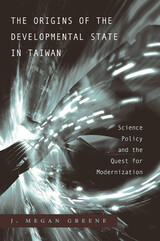
Building a Nation at War argues that the Chinese Nationalist government’s retreat inland during the Sino-Japanese War (1937–1945), its consequent need for inland resources, and its participation in new scientific and technical relationships with the United States led to fundamental changes in how the Nationalists engaged with science and technology as tools to promote development.
The war catalyzed an emphasis on applied sciences, comprehensive economic planning, and development of scientific and technical human resources—all of which served the Nationalists’ immediate and long-term goals. It created an opportunity for the Nationalists to extend control over inland China and over education and industry. It also provided opportunities for China to mobilize transnational networks of Chinese-Americans, Chinese in America, and the American government and businesses. These groups provided technical advice, ran training programs, and helped the Nationalists acquire manufactured goods and tools. J. Megan Greene shows how the Nationalists worked these programs to their advantage, even in situations where their American counterparts clearly had the upper hand. Finally, this book shows how, although American advisers and diplomats criticized China for harboring resources rather than putting them into winning the war against Japan, US industrial consultants were also strongly motivated by postwar goals.

The rapid growth of Taiwan’s postwar “miracle” economy is most frequently credited to the leading role of the state in promoting economic development. Megan Greene challenges this standard interpretation in the first in-depth examination of the origins of Taiwan’s developmental state.
Greene examines the ways in which the Guomindang state planned and promoted scientific and technical development both in mainland China between 1927 and 1949 and on Taiwan after 1949. Using industrial science policy as a lens, she shows that the state, even during its most authoritarian periods, did not function as a monolithic entity. State planners were concerned with maximizing the use of Taiwan’s limited resources for industrial development. Political leaders, on the other hand, were most concerned with the state’s political survival. The developmental state emerged gradually as a result of the combined efforts of technocrats and outsiders, including academicians and foreign advisors. Only when the political leadership put its authority and weight behind the vision of these early planners did Taiwan’s developmental state fully come into being.
In Taiwan’s combination of technocratic expertise and political authoritarianism lie implications for our understanding of changes taking place in mainland China today.
READERS
Browse our collection.
PUBLISHERS
See BiblioVault's publisher services.
STUDENT SERVICES
Files for college accessibility offices.
UChicago Accessibility Resources
home | accessibility | search | about | contact us
BiblioVault ® 2001 - 2024
The University of Chicago Press









